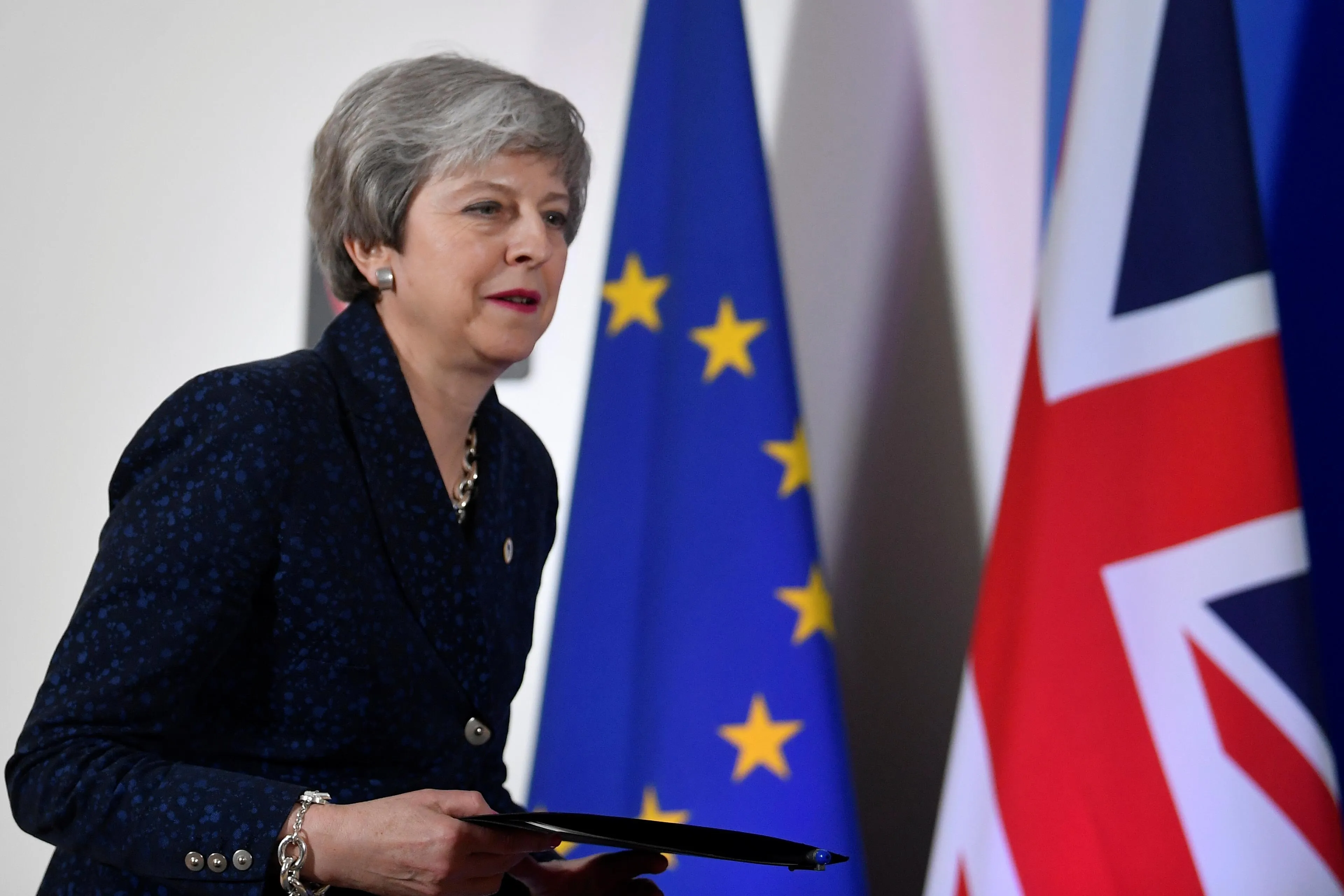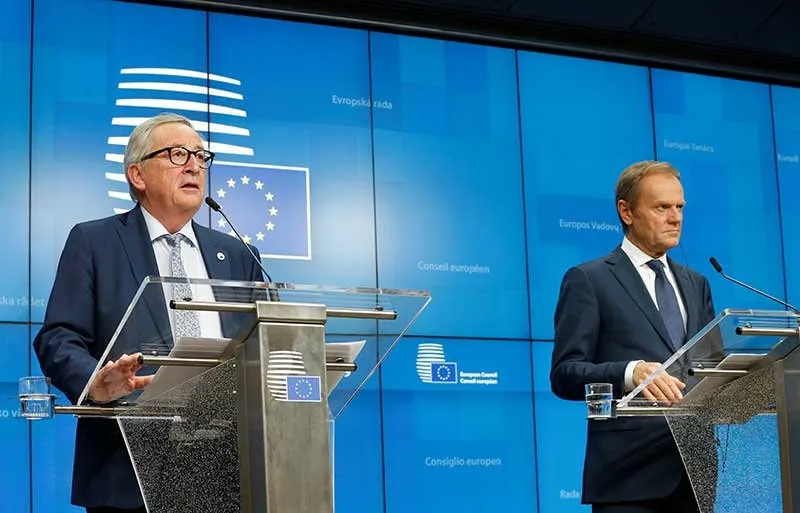Sau 7 giờ hội nghị căng thẳng tại Brussels (Bỉ) vào ngày hôm qua, 27 nước thành viên EU đã thống nhất thông qua lựa chọn gia hạn Brexit thời gian ngắn. Lựa chọn này tạo thêm áp lực với Quốc hội Anh phải ủng hộ thỏa thuận của bà May, đồng thời cũng làm tăng thêm khả năng rủi ro Brexit sẽ diễn ra mà không thỏa thuận.
Trái với những gì dự đoán trước đó, ban đầu Thủ tướng Anh Theresa May dự định Brexit sẽ được trì hoãn tới 30/6, EU chỉ cho phép gia hạn thêm 2 tuần để bà May có thể tổ chức 1 cuộc bỏ phiếu vào tuần tới.
Chủ tịch Hội đồng châu Âu Donald Tusk và Chủ tịch Ủy ban châu Âu Jean-Claude Juncker tại buổi họp báo trong khuôn khổ hội nghị thượng đỉnh các nhà lãnh đạo EU tại Brussels, Bỉ ngày 21/3/2019 (Ảnh: Reuters)

Thủ tướng Anh Theresa May tại hội nghị ở Brussels (Ảnh: Reuters)
Trước đó, phía EU cũng từng nghĩ tới việc kéo dài thỏa thuận tới ngày 22/5 - 1 ngày trước khi diễn ra cuộc bỏ phiếu Quốc hội EU. Tuy nhiên, Tổng thống Pháp Emmanuel Macron là người đã có bước đi táo bạo khi buộc Anh phải rời EU, dù có hay không có thỏa thuận trước ngày 7/5.
Kết quả cuối cùng được đưa ra, cũng làm hài lòng bà May, là Anh sẽ rời EU vào ngày 22/5 nếu như thỏa thuận của bà được thông qua trong tuần tới. Nếu không, Anh có thời hạn 2 tuần (đến ngày 12/4) để đưa ra một kế hoạch mới, hoặc lựa chọn Brexit không thỏa thuận.
May gets two-week Brexit reprieve from impatient EU
(Reuters) - European Union leaders have given Prime Minister Theresa May two weeks’ reprieve, until April 12, before Britain could lurch out of the EU if she fails to persuade lawmakers to back the withdrawal treaty she concluded with Brussels.
But after seven hours of summit brainstorming on Thursday, her 27 peers kept a host of options open, ramping up pressure on parliament to support May, giving Britain an outside chance of staying in for much longer - but also preparing to deflect blame for the chaos of any no-deal Brexit.
May had wanted to be able to delay Britain’s departure until June 30 to tie up legislative loose ends, and tried to reassure the EU that she could overturn two heavy defeats to clinch a last-gasp parliamentary ratification of her deal next week, so allowing a status-quo transition period to come into effect.
EU leaders had planned to endorse a shorter extension, to May 22, the eve of EU parliamentary elections, and leave any discussion of how to deal with May losing until next week. But diplomats said the prime minister singularly failed to reassure them she could win. Some sensed she did not believe it herself.
After May left the room, and with French President Emmanuel Macron pitching a surprise ultimatum for Britain to be out, deal or no deal, by May 7 — the eve of a summit on the EU’s post-Brexit future — the meeting plunged into frantic debate.
The outcome, with which May declared herself satisfied, was that the May 22 date will apply if parliament rallies behind her next week. If it does not, Britain will have until April 12 to offer a new plan or choose to quit without a treaty.





